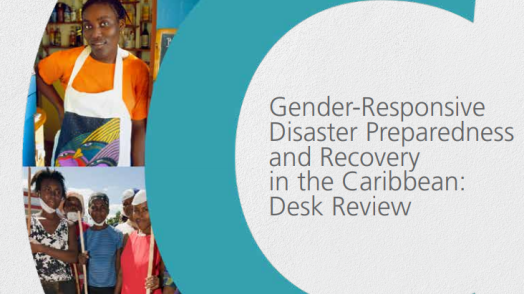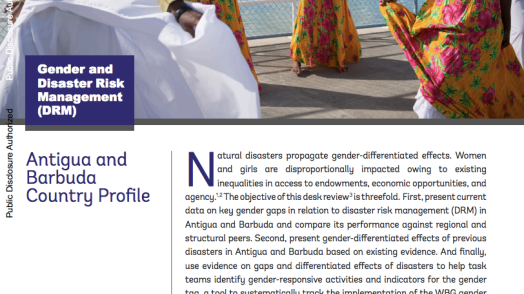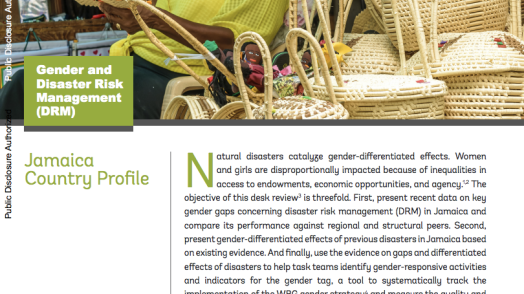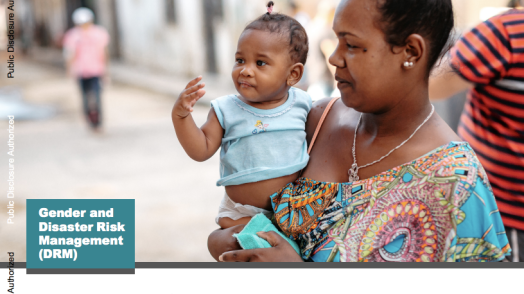Strong evidence from around the world demonstrates that disaster impacts are more devastating for vulnerable populations, including women, the poor, the elderly, youth, people with disabilities, and various minority groups. This evidence underscores the importance of differential gender analysis for effective disaster planning and recovery, considering the specific needs of these groups. The Canada-Caribbean Resilience Facility (CRF) recognizes the importance of evidence-based approaches to disaster risk management (DRM), and through its gender workstream, it aims to evaluate gender-responsive disaster preparedness and recovery efforts in nine Caribbean countries: Antigua and Barbuda, Belize, Dominica, Grenada, Guyana, Jamaica, Saint Lucia, Saint Vincent and the Grenadines, and Suriname.
The gender inclusion knowledge products developed under the CRF are being used to assess current data on key gender gaps in relation to disaster risk management (DRM) and compare a country’s performance against regional and structural peers. They additionally showcase evidence of the gender-differentiated effects of previous disasters in a given country based on existing evidence, and use the evidence on gaps and differentiated effects of disasters to help World Bank teams identify gender-responsive activities and indicators for the gender tag, a tool employed to systematically track the implementation of the WBG gender strategy and measure the quality and results of World Bank operations.




